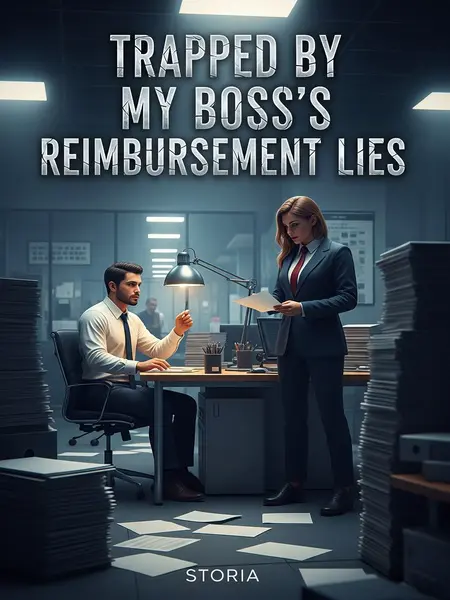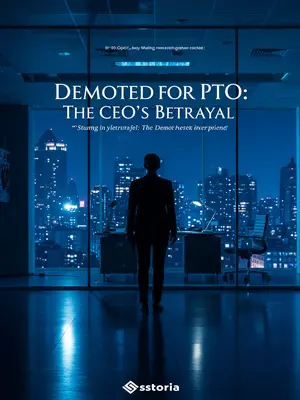Chapter 2: Kafkaesque Accounting
I’d spent months traveling for a company project worth millions. Just as we were about to wrap things up, suddenly, my travel expenses couldn’t be reimbursed.
It felt like a bad punchline to a joke—months of endless red-eye flights, awkward hotel breakfasts, and living out of a suitcase. I was the guy keeping the wheels turning while everyone else collected their paychecks from behind their desks.
I tried catching the finance department during a quick visit back to the office, but they shot me down right away.
“Reimbursements are only processed during the last week of each month.”
The receptionist didn’t even bother to look up from her Sudoku puzzle, just pointed to a faded poster tacked up behind the glass.
The problem was, at the end of every month, I had to attend project summary meetings with the client. How could I possibly be in the office?
It was the same routine every month: catch the 5:30 a.m. Southwest flight, rental car straight to the client site, back-to-back meetings until late, then crash in a too-small bed and try to keep up with emails.
So, I’d rush back at the start of the last week to submit my claims, then dash off to the project site again. And of course, my hotel and meal costs always exceeded the company limits.
I’d barely have time to scarf down a coffee and bagel from Dunkin’ before I was back in my car, weaving through traffic, cursing every red light that slowed me down.
The finance lady just kept a poker face, repeating the same thing over and over: as long as my boss signed, she’d process my reimbursement.
It was like talking to an ATM that only dispensed excuses. Her monotone reminded me of those automated customer service lines that never let you speak to a real person.
So I brought my claim form to the boss and tried to explain.
“Boss, it’s impossible to find a hotel in Chicago for $15 a night.”
“You haven’t even tried. How do you know it’s ‘impossible’?”
I wanted to laugh. I’d spent hours scouring Expedia and Airbnb, desperate for a deal. Even couch surfing wasn’t that cheap.
“Even Motel 6 is $50 a night in Chicago. I found a tiny roadside inn for $25—already as cheap as it gets. If you don’t believe me, check online.”
The boss sneered, pulled out his phone, tapped around, and found a few youth hostels—$10 a night.
He smirked as if he’d discovered a loophole in the laws of physics. “See? Want me to book one for you?”
“That’s a hostel, boss. Eight people to a room.”
I tried not to sound desperate, but the thought of sharing a bunk with a bunch of strangers and their bedbugs made my skin crawl.
“So what? If others can stay there, why can’t you?”
His words hung in the air, thick with indifference. I looked down, trying to rein in my frustration.
“I need to work late. With eight people in the room, how am I supposed to get anything done? And what if my personal stuff or the company laptop gets stolen?”
Maybe he thought I had a point, but he quickly searched again and found Motel 6 locations way out in the suburbs—technically still Chicago, but only $15 a night.
He waved his phone like it was proof of divine truth. “Boss, those are on the outskirts. I’d have to take the commuter rail just to get to the client.”
He stared at the map for a while. “No, there’s public transit. Just get up earlier, problem solved.”
He shrugged as if my two-hour commute each way was just a minor inconvenience—like picking the wrong flavor of LaCroix from the office fridge.
I swallowed my anger.
My jaw clenched so tight it hurt. I could feel my face burning, but I kept it together. Barely.
“And the $3 meal allowance isn’t enough. In Chicago, even a basic sandwich is nearly $7.”
“Sam, let me say something. If you weren’t on a business trip, wouldn’t you still be paying for your own meals? Why do you think you shouldn’t have to pay just because you’re traveling for work? You have to eat either way. The $3 I give you is a perk—enough for a boxed lunch from a group order, isn’t it?”
His tone was condescending, like a dad explaining to his kid why the tooth fairy doesn’t leave twenties. I wanted to scream.
I was speechless. And on top of that, the company made us take the Greyhound—the business travel trilogy: Greyhound buses, youth hostels, and boxed lunches from group orders.
You’d think we were being sent to boot camp, not representing a multimillion-dollar project. I could already hear my college buddies laughing about my so-called ‘corporate perks.’
Whoever wants these trips can go.
Looking at the boss’s shameless face, I knew there was no way he’d give me the money. Fine. According to finance, with hotels at $15 and meals at $3, I could still get over $6,000 reimbursed. I’d take that first—at this point, I could barely afford to eat.
It was a grim calculus—accepting a loss just to stay afloat, pretending the system made any kind of sense. I started mentally rationing my next grocery run.
But even when I was willing to take the loss, finance still wouldn’t give me a dime.
I felt like I was trapped in a Kafka novel, only with more Excel spreadsheets and less existential poetry.
I lost count of how many times I trudged that same worn path from my desk to his door.
One night on the road came roaring back to me: stuck in a freezing Motel 6 off I-94, heat busted, wrapped in a coat with my laptop propped on a stack of vending machine snacks, trying to finish a report by midnight. I’d called the front desk for a blanket and they brought me a thin, scratchy sheet that barely covered my knees. I’d never felt so alone—or so expendable.













